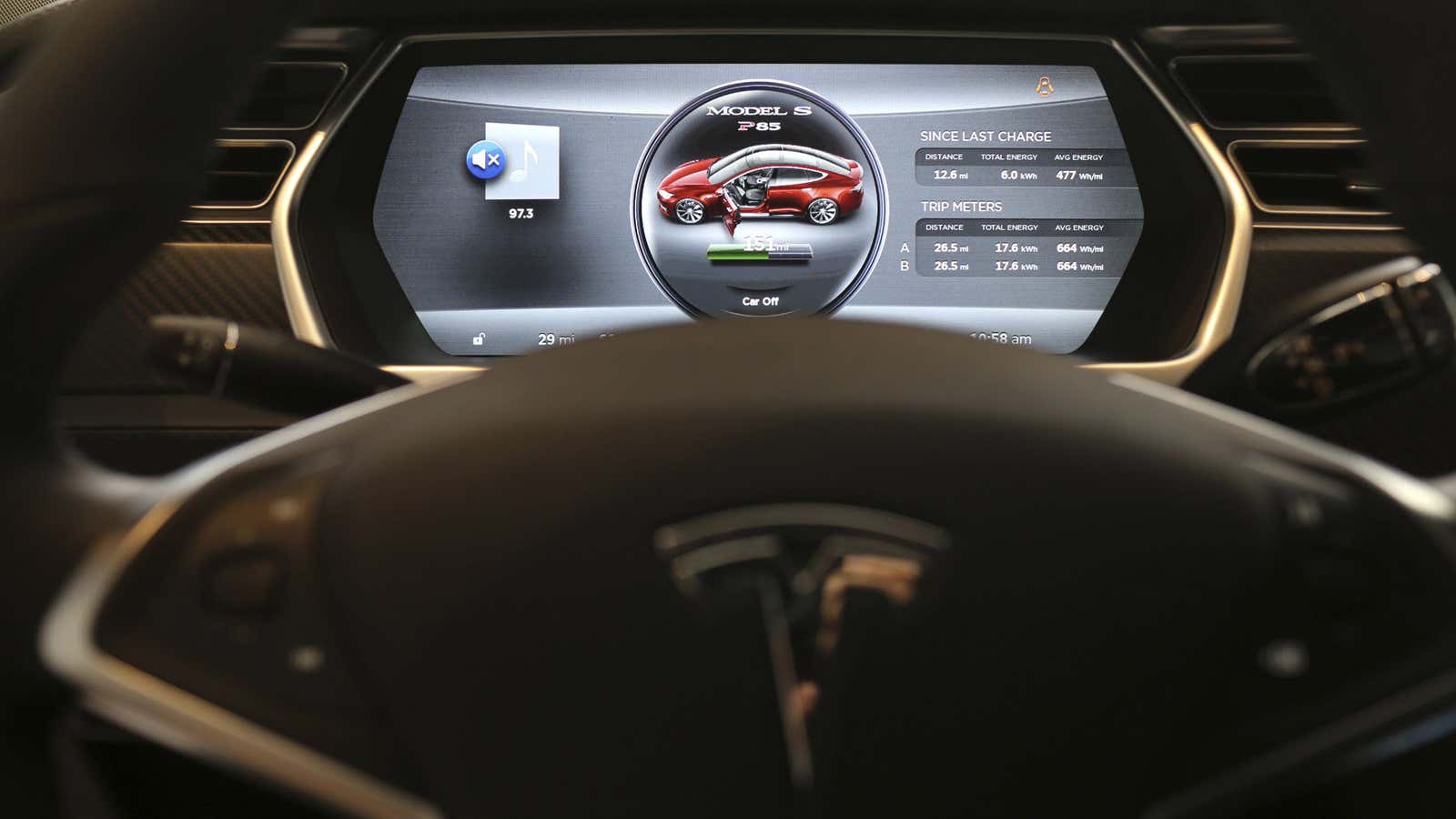Tesla held its annual shareholder meeting in northern California yesterday, and there were a few important messages for anyone interested in the entrepreneur’s vision for the future.
Musk said he’d be sticking around as CEO of the electric vehicle maker for another four to five years. By then, he expects production on its more affordable, third-generation vehicles, which many think will catapult the company into the mainstream, to have ramped up. (Musk is also CEO of his rocket and spacecraft manufacturer SpaceX and the chairman of home energy company Solar City.)
He also disclosed that the sites for Tesla’s much vaunted gigafactory won’t be finalized until the end of the year.
But arguably his most important comments were in relation to Tesla’s patents. As reported by USA Today, Musk said he is planning to do something “fairly controversial” with Tesla’s patents, which he would have to “carefully explain.” He added that he was disappointed that other auto-makers were not taking electric vehicles seriously.
It’s impossible to know what exactly he is planning, and Tesla did not immediately respond to a request for comment. But don’t forget Musk has previously described the patent system as “farcical.” In an interview with Wired, he said SpaceX has no patents “because the Chinese would just use them as a recipe book.”
If he really is planning to let anyone use Tesla’s technology to foster electric car development, it would be a refreshing change from the bickering so many other technology companies are engaged in when it comes to their intellectual property.
But it might not end up being as radical as open-sourcing the company’s core technology. Remember, Twitter developed a new agreement with its engineers and developers that would prevent patents awarded to them from being used in offensive lawsuits by the company without their permission. Google has made a similar patent pledge.
And if Musk is pondering such a move it wouldn’t be purely altruistic. Fostering an ecosystem around electric vehicles could, in theory, lead to more suppliers, perhaps driving down input costs.
But how Tesla investors would react to such a development is a different matter entirely.
